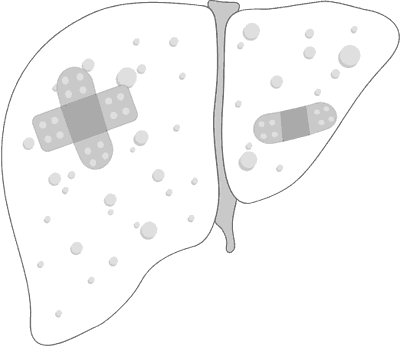The Rise of MASLD (Fatty Liver Disease): Causes, Symptoms, & Treatment
Blog

Metabolic associated steatotic liver disease (formerly known as fatty liver disease or fatty liver), is becoming increasingly prevalent worldwide. Understanding the causes, symptoms, and treatment options for MASLD is crucial for managing this condition effectively. Keep reading to learn more and take control of your liver health.
What is MASLD? (Otherwise known as fatty liver disease)
MASLD is a condition characterized by the accumulation of excess fat in the liver. If left untreated, it can lead to liver failure, cirrhosis and increase the risk of liver cancer as well as a shortened life span.
Risk Factors
Risk factors for this condition include type 2 diabetes mellitus, hypercholesterolemia, high BMI, and genetics. Poor dietary habits, such as high consumption of saturated fats, sugars and processed foods, can lead to obesity and insulin resistance, both of which are closely linked to MASLD. Physical inactivity further exacerbates these conditions by reducing the body's ability to burn fat, leading to its accumulation in the liver. Additionally, excessive alcohol consumption, though not the primary cause of MASLD, can worsen liver fat accumulation and accelerate liver damage.
Symptoms of MASLD (Fatty Liver Disease)
The symptoms of MASLD can be subtle and often go unnoticed in the early stages.
Common symptoms include:
● Fatigue
● Abdominal discomfort or pain, particularly in the upper right quadrant
● Unexplained weight loss
● Weakness
● Jaundice (yellowing of the skin and eyes) in advanced stages
Early detection is crucial to prevent the progression of MASLD to more severe liver diseases.
Detection of MASLD
Baseline abdominal ultrasound (non-invasive)
A baseline abdominal ultrasound is a common non-invasive method for detecting MASLD. This imaging technique uses sound waves to create images of the liver, allowing doctors to identify fat accumulation and assess liver health. It's a simple and effective tool for initial screening and monitoring of liver conditions.
Liver Elastography
Liver elastography is a more advanced technique that measures liver stiffness, which can indicate fibrosis or scarring caused by fatty liver disease. This non-invasive method provides more detailed information about the extent of liver damage and helps in the accurate assessment of MASLD progression.
Treatment for MASLD (fatty liver disease)
The foundation of treatment for MASLD revolves around lifestyle modifications.
“The main foundation of treatment for this is always going to be a healthy lifestyle, staying active, eating healthy, that's your cornerstone of therapy.”—NYGA Doctors
Lifestyle modifications
This includes regular physical activity and a balanced diet rich in fruits, vegetables, whole grains, and lean proteins. Reducing the intake of sugars, saturated fats, and alcohol is also essential. NYGA’s GI dietitians can assist you with a customized diet plan for the treatment of MASLD.
Medical treatments
In addition to lifestyle changes, there has been a significant advancement in the medical treatment of MASLD. For the first time, a medication specifically approved for the treatment of fatty liver disease, called Rezdiffra (resmitirom), is now available.
Learn more about NYGA’s comprehensive treatments for MASLD and liver health, as well as our nutritional counseling services for a 360-degree approach to gastrointestinal health. Don't wait - prioritize your health today.
